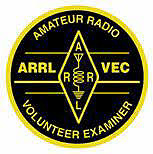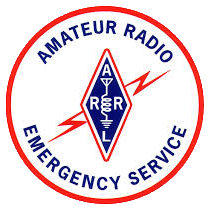Being net control is not what many people think it is. Net control is not all-powerful, nor particularly glamorous. It is, however, important to the smooth running of amateur radio operations during an exercise, special event, or actual emergency. That being said, on to the myths:
1. The Net Control Station is “In Charge”
This is the biggest myth, because it’s what can make the net ineffective. If you think you are in charge, think again. Yes, in a directed net people are supposed to communicate, be assigned tasks, even receive orders through Net Control. It is rare, however, that the net control is truly his or her own boss. Unless it is your incident or exercise and you are the incident commander as well as net control, you are working for someone else.
This may be a public safety incident commander (IC), a communications unit leader or the organizer of the bike ride the group is working for. In summary, a net control is working to facilitate someone else’s incident, exercise, bike ride, whatever. There is almost always someone giving direction to net control, but often with little understanding of what is possible, what we do or how we do it. An important part of the net control’s job is translating someone else’s orders into actions the net members can carry out.
2. The Net Control Actually Controls the Net
We are all volunteers, especially those the Net Control station is managing during the net. If participants follow your direction, it’s because they want to. Give them directions they don’t like and they may choose to not participate, start working around you, or may not be available the next time you need their help. Some groups are more committed and better disciplined than others, but net control must always remember that net members are volunteers and cannot be taken for granted.
3. Net Control does the Most Important Work
Check your ego at the door. It’s the members of the net that do the actual work. They are in the field, at fixed locations, perhaps mobile. They are out where things are happening, may happen or better not happen, may have been deployed for quite some time, and may be tired and hungry.
Net control’s job is primarily to support net members in getting the job done, responding to requests from above, figuring out how to fulfill the needs of the served agency, assigning tasks to net members, and reporting the result back to the requesting party.
4. The Net Control Station Works Alone
If you are working an emergency net all by yourself, you are putting the net members and operation at risk. If you are all alone, you will probably have to leave the net from time to time. Bathroom, food, drinks, whatever, will draw you off the radio. That’s when four-out-of-five doctors predict something bad will happen and the net will go south while you are away. Don’t let that happen.
Smart net controls want at least one and maybe several other operators — who needn’t be great net controls themselves — somewhere within earshot. One of these people should be your backup logger and extra set of ears.
Logging is a critical task that many people don’t pay enough attention to. If you get in the habit of keeping good logs when they aren’t really necessary, it'll be automatic when an emergency happens.
Net control locations can be noisy and you may need to keep an ear on multiple radios or channels, if only so you know what else is going on around you. But there are limits to what can be kept up with. So you'll want liaisons to other nets to monitor and relay necessary information.
If you're on location at Incident Command Centwer during an emergency you'll really want an alternate net control station who can interact with the management staff and relay information, allow for a rest or break, etc.
5. Anybody Can Be a Net Control Station
Being net control does not require super powers. It does, however, require a variety of skills that not everyone has. The reason I mention this myth is to point out that being a Net Control station on a weekly net is not the same as being Net Control during an incident, exercise, or public service event.
Running the weekly club net requires only a minor subset of what is required to run emergency or public safety communications. It is great practice and allows us to hone our skills, and I recommend that everyone take a turn at being net control during weekly club nets and here as well.
That being said, a Net Control station during a deployment will need to organize liaisons to other nets, identify backup Net Control stations, keep track of the status of participating stations, plan for equipment or repeater failure, interact with served agencies, etc. Certainly more complex than typical weekly net control, but unlikely to be possible if you've not even run a weekly net.
So if you feel you'd like to try your hand at the Net Control game, start by volunteering to call the Monday night net, then this one, and get some practice in before trying your hand at running the net during an exercise, event, or (hopefully not) an actual emergency.




